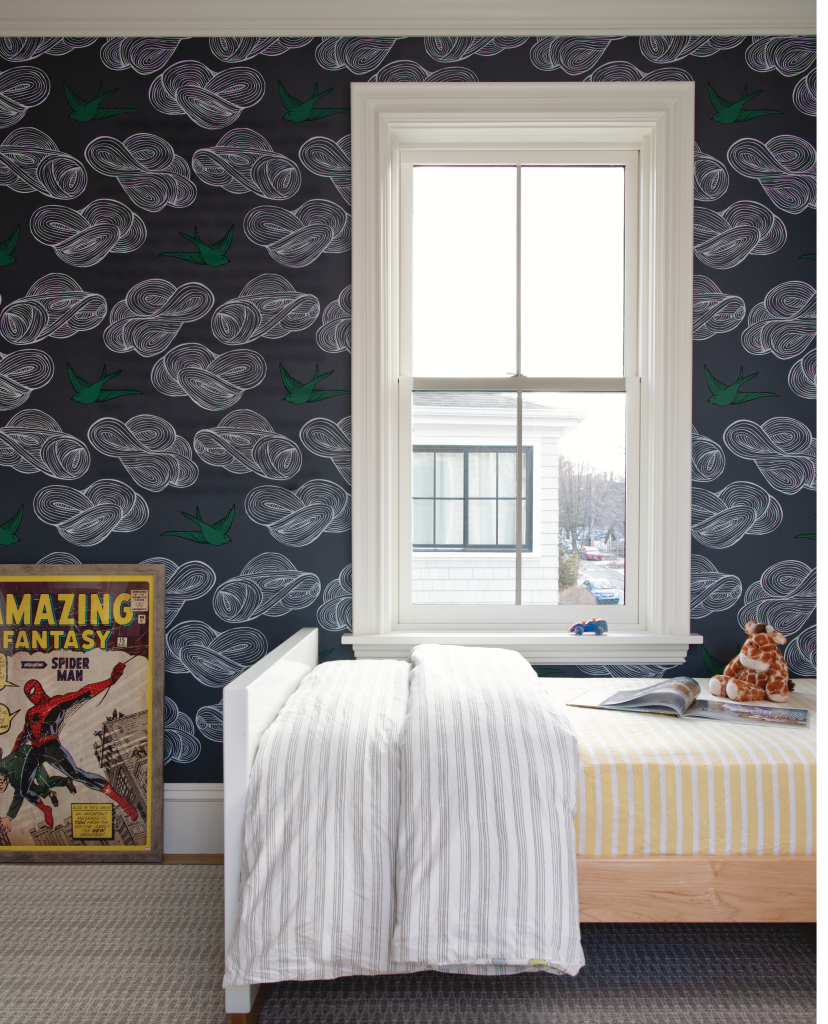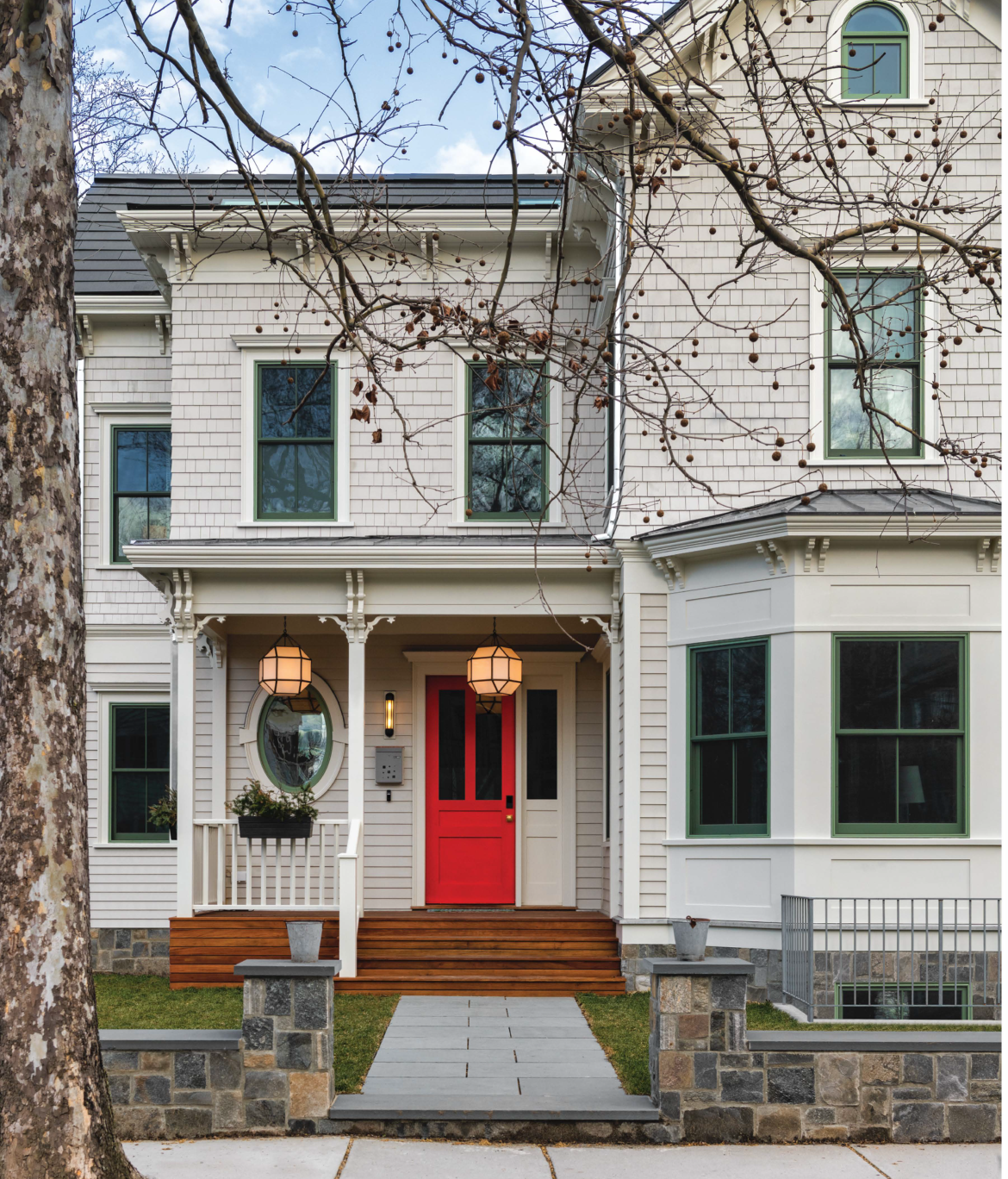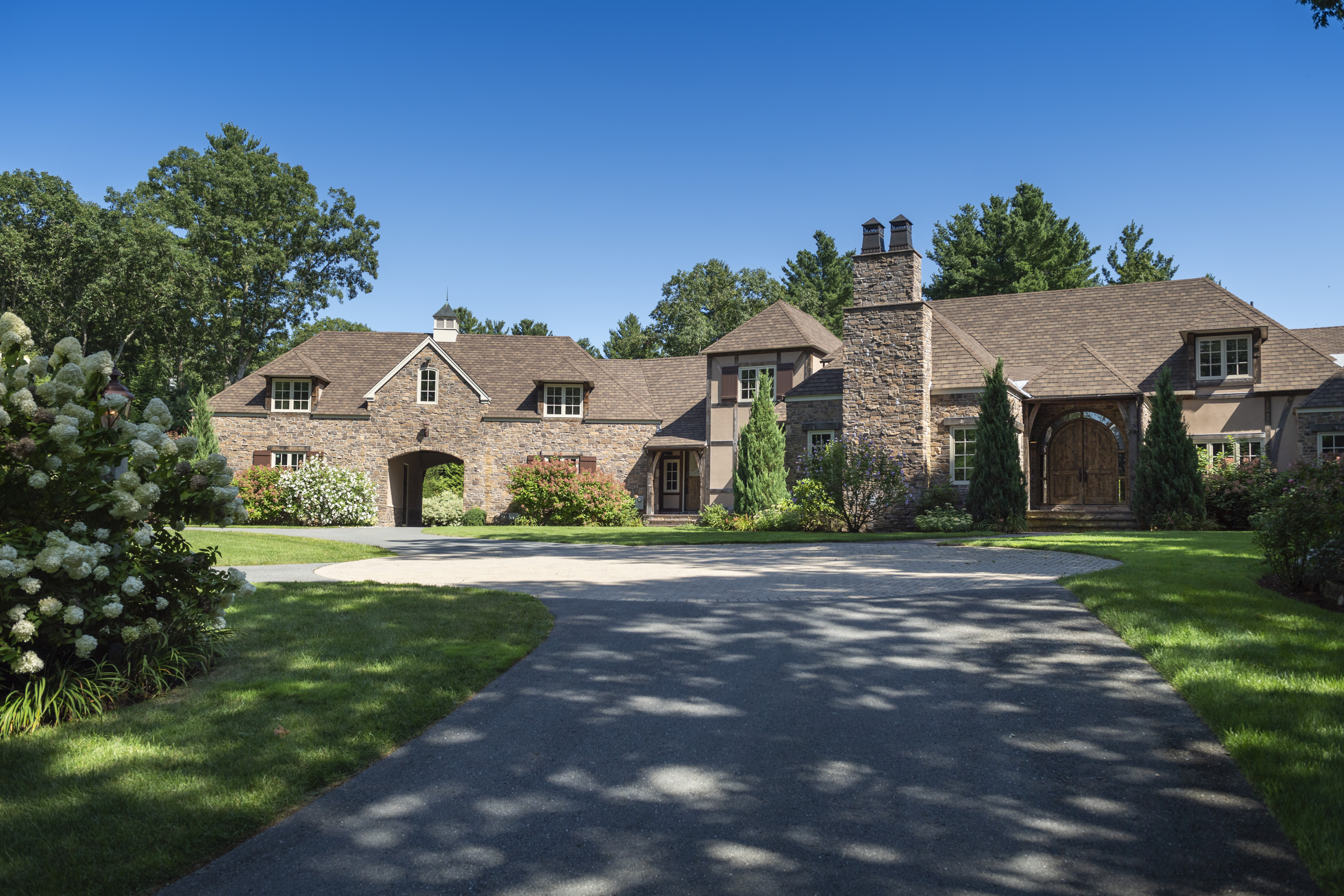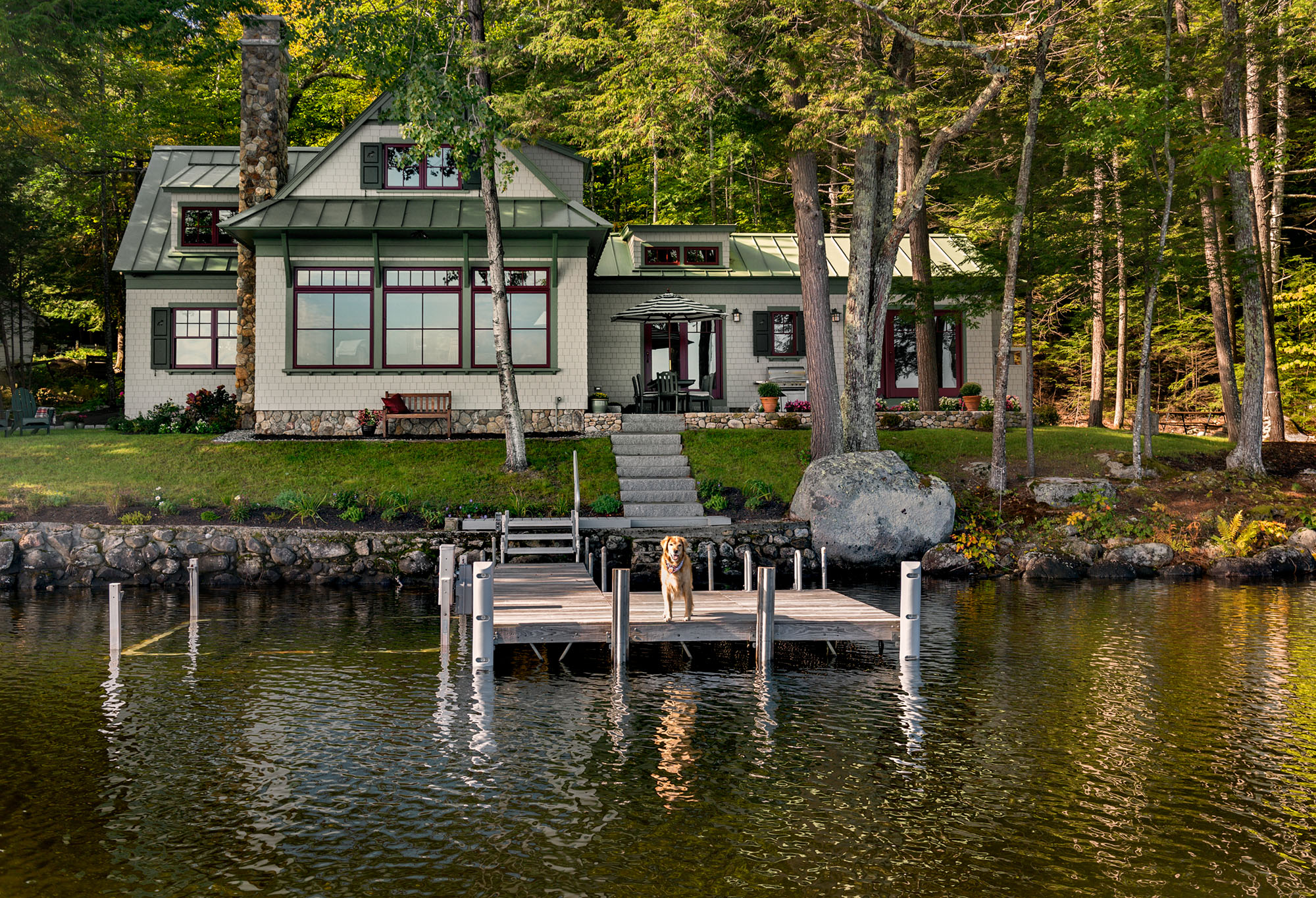With nods to the past, a modern family home is created in Cambridge.
By Jaci Conry
In 2019, architect Sam Kachmar and his wife purchased a dilapidated Victorian home in Cambridge, Massachusetts, complete with broken windows and asbestos shingles, with plans for renovation. But, after they moved into the nearly 150-year-old residence, the couple realized updating the existing structure to 21st-century standards would be a bigger challenge than they’d anticipated.
While the Shingle Style house had been a showpiece when it was first built in 1875, Kachmar says that decades later, “it had been wrapped in concrete, which had caused the house to lose all of its detail.” The long-ago process had done structural damage as well. “We really wanted to renovate, but as we looked deeper into it and even considered lifting the house off of the foundation, it seemed problematic,” he says.
As the pandemic settled in, the couple decided the right course was to build a new house from the ground up for their family of five. “In October 2020, zoning boards were approving projects easier because everyone thought the world could be ending,” Kachmar says. “We were very fortunate to get approved to build a new house in the same spot, with a similar footprint as the original house.”
Kachmar’s plans for the new home took cues from historical architecture. “It’s not an exact reproduction, but it is in keeping with the styling of homes built in the era,” he says. For example, the third floor features arched windows that evoke some of the curvature found in the former home’s Victorian styling. The square footage runs about 1,000 square feet bigger than the original home, and the basement was dug out to create an in-law apartment for Kachmar’s mother. The new house was also built 15 feet closer to the street to match the orientation of the rest of the houses on the block.
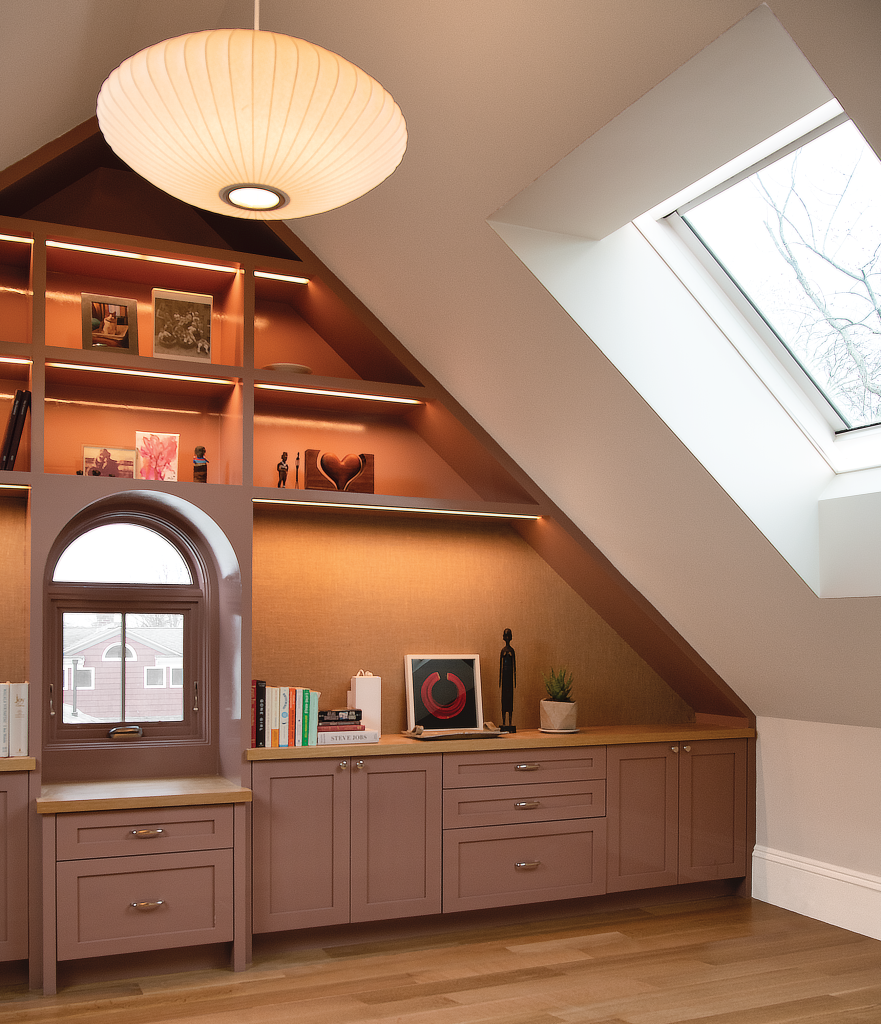
The design of the new home centers around maximum access to natural light. Just inside the front entry, an open central staircase winds all the way up to the third floor, where three Marvin Awaken skylights filter light from the top of the house all the way down to the main level. The skylights also help keep the house cool in warmer months. “If you open all three skylights simultaneously, it’s the equivalent of a bunch of windows being open throughout the house,” Kachmar says. “The skylights pull the warm air up and out of the house, which works as a natural cooling system.”
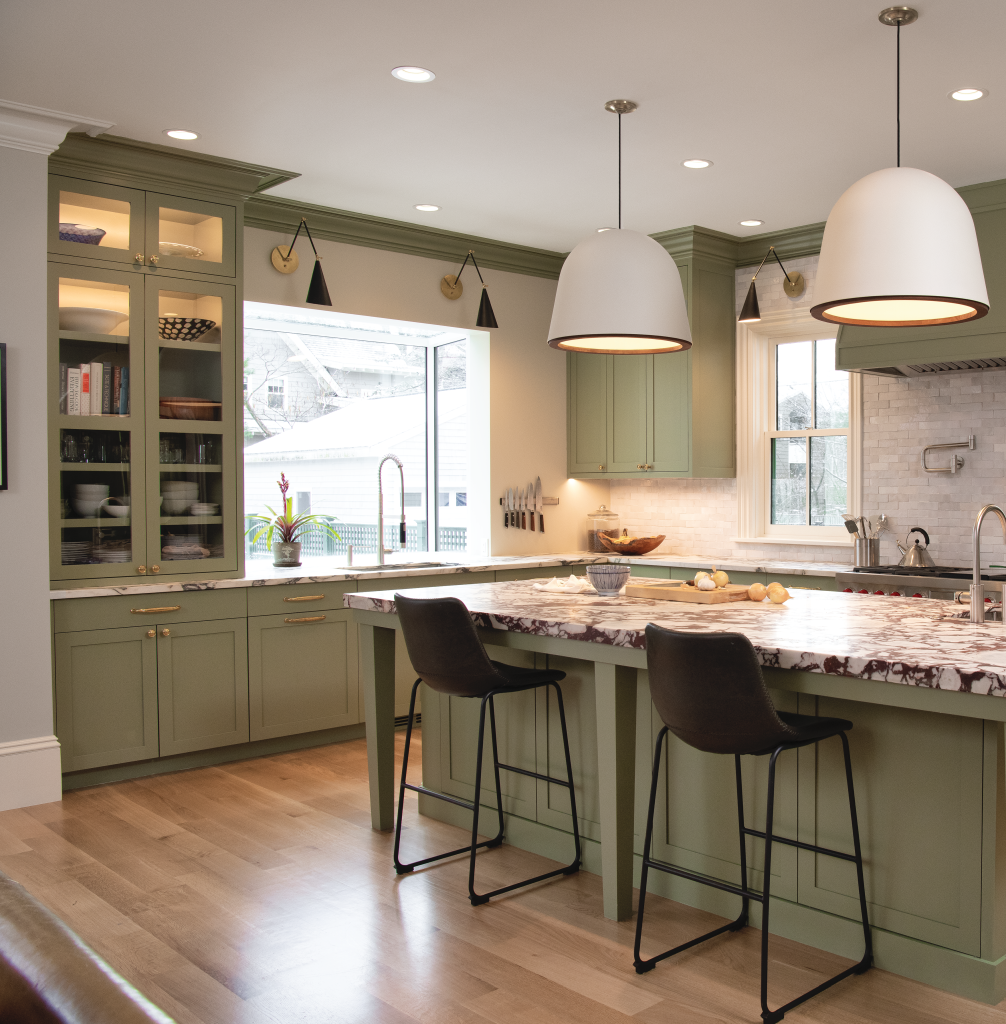
In the kitchen, the architect opted to have a Marvin Skycove installed behind the sink. A glass structure that projects into the open air, the Skycove creates a smart extension of usable space while ushering in restorative light from four directions. While many residences incorporate the Skycove as a window seat, Kachmar wasn’t drawn to the element for that purpose. “In Cambridge, it’s not ideal to be sitting in a window seat,” he says. “I utilize it as a box bay to grow plants. It lets in great light all day long, particularly from the east/northeast in the morning.”
“When it came to Sam Kachmar’s home, he sought creative ways to harness light and views in partnership with a local dealer and products that he could trust,” says Joe Adams, sales consultant at JB Sash.“ What’s great about being a premier Marvin dealer is our ability to bring our forward-thinking customers, like Sam, innovative products that help him imagine and create better ways of living for himself and his clients.”
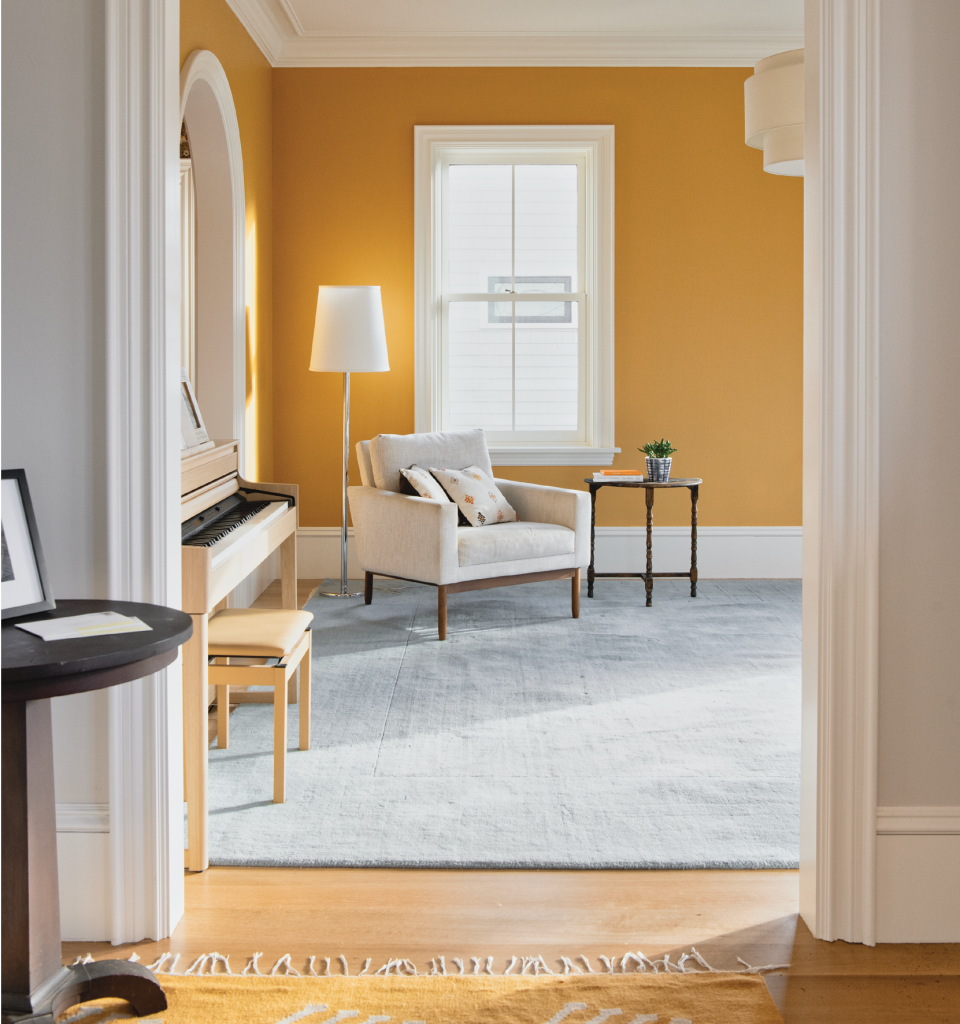
Building an efficient home was a top priority. The new residence has a fully solar roof and a HERS rating of 41, which means that it’s nearly 60 percent more energy efficient than a standard home. Key in achieving this ranking was the window selection. “Previously, the house had old single-pane windows. We could hear people’s conversations on the street,” Kachmar says. “They were very drafty; we couldn’t get the house to stay warm without burning a ton of fossil fuels.” The new home utilizes triple-pane Marvin Ultimate windows throughout. “These windows allow for a much higher level of efficiency,” he says. “They were able to handle that brief Arctic blast we had for a couple of days this year; there were no drafts—it was pretty toasty in the house and very quiet!”
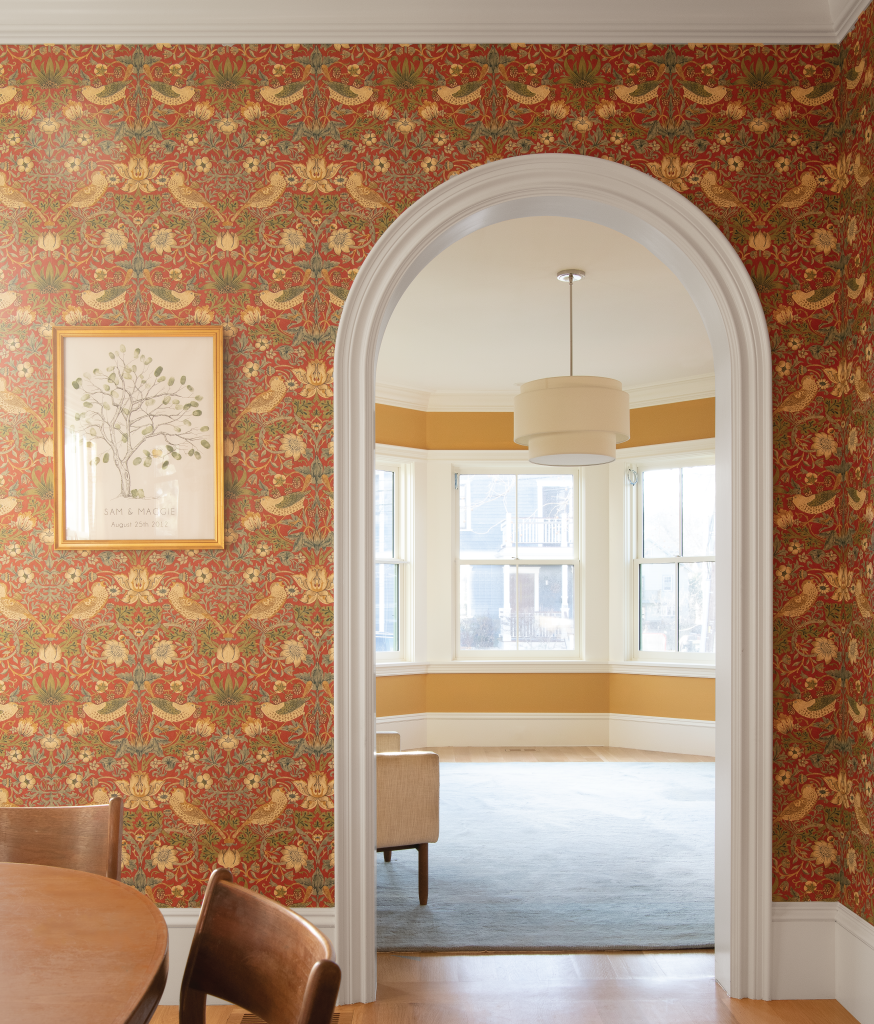
Putting the stairs in the center of the house created a strong circulation pattern on the first floor, where rooms are very open to one another. In the old house, the core living spaces were very separate—each room had three doors. “Good circulation is key in bigger houses; you should be able to walk in a loop in some way,” Kachmar says, noting that his children often run circles throughout the main living spaces. “When you are designing for a young family with kids, it’s helpful to find ways for them to let energy out.”
The newel post on the stairs is a replica of the one from the home’s original stairway. The post was a little too banged up to display on the main level and was used on the stairway accessing the home’s finished lower level.
“With its Victorian elements, the house fits in with the architecture of our neighborhood in West Cambridge,” Kachmar says. “But it performs and functions like a modern house, which is the best possible outcome.”
